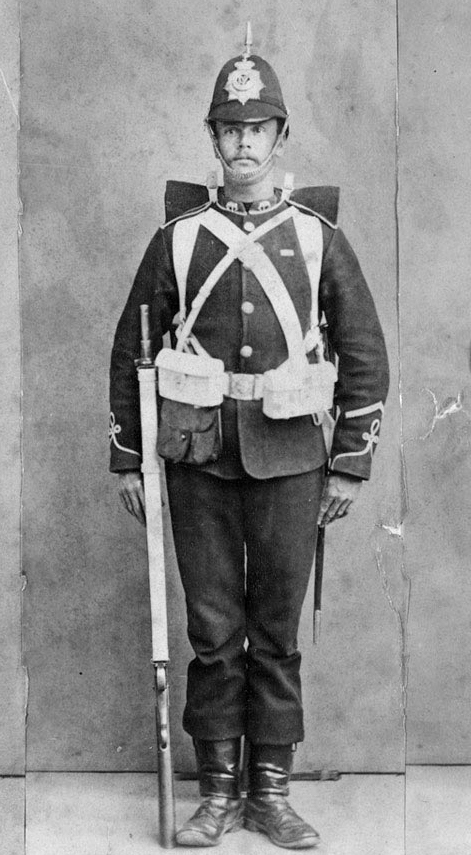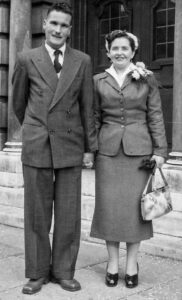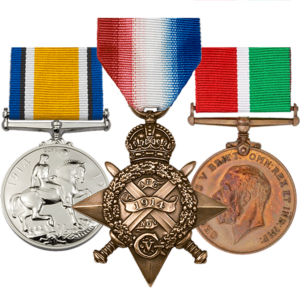William enlisted into the army on 23 February 1877 when aged just 14. He was described as 4 feet 6 inches tall with grey eyes, dark brown hair, and a fresh complexion. He was given service number 696 and joined the 94th Regiment of Foot of the 65th Brigade as a Boy, being promoted to Lad on his 15th birthday and Private on his 17th birthday.
Anglo-Zulu War
The British Empire had colonies in southern Africa bordering on various Boer settlements, native African kingdoms such as the Zulus and the Basotho and numerous indigenous tribal areas and states. In April 1877 they annexed the Transvaal arguing that this would create stability in the region. In January 1879 they invaded neighbouring Zululand. Despite most Zulus entering battle armed only with shields and spears, the invasion was a disaster for the British. The Zulus were formidable opponents – courageous under fire, manoeuvred with great skill and were adept in hand-to-hand combat. They forced a retreat, which in turn forced London to send reinforcements. The 94th Foot embarked for South Africa in the spring. The British invaded again at the end of May 1879, and this time the reinforced army made steady progress, despite supply problems and constant skirmishing. On 4 July, the 5,000-strong army formed a large square opposite the Zulu capital Ulundi. Around 20,000 Zulus attacked in their usual fashion but faced with an early type of machine gun and artillery, their brave charges soon petered out. The cavalry then drove the survivors from the field. Around 6,000 Zulus were slain for the loss of 10 men killed and 87 wounded.
The British had also demanded allegiance, land, and taxes from the neighbouring baPedi, which they refused. This triggered two brutal campaigns, but the baPedi remained undefeated. On 28 November 1879 during a third campaign, they were eventually beaten in bloody battle by a combined force of the British Army (including the 94th Foot), Boers and 8,000 Swazi troops. There were many casualties on both sides.
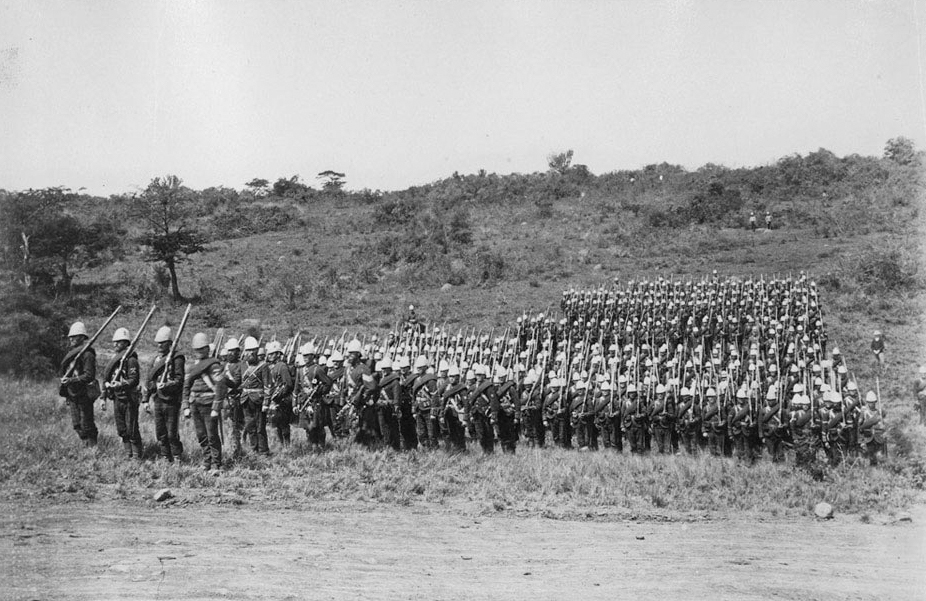
The First Boer War
In yet another crisis in the area, on 13 December 1880, around 4,000 Boers proclaimed the re-constitution of the South African Republic and appointed a provisional government. The Boers then immediately besieged the scattered British forts across the Transvaal. The 94th Foot had its eight companies widely distributed. A week later, a column of 260 men from the 94th Foot was halted at Bronkhorstspruit by around 200 Boers while marching from Lydenburg towards Pretoria. 56 men were quickly killed and nearly 100 wounded, with the remainder taken prisoner. The other six companies of the regiment spent the war being besieged by the at Standerton, Pretoria, Marabastad, and Lydenburg. A peace treaty was signed in March 1881 and the Transvaal regained its independence.
The Childers Reforms of 1881 merged single battalion regiments such as the 94th Foot, which joined with the 88th Foot to form the Connaught Rangers. The 94th became the 2nd Battalion and was posted to Ireland the following year, just as William was promoted to Corporal. He quickly became Sergeant in 1883.
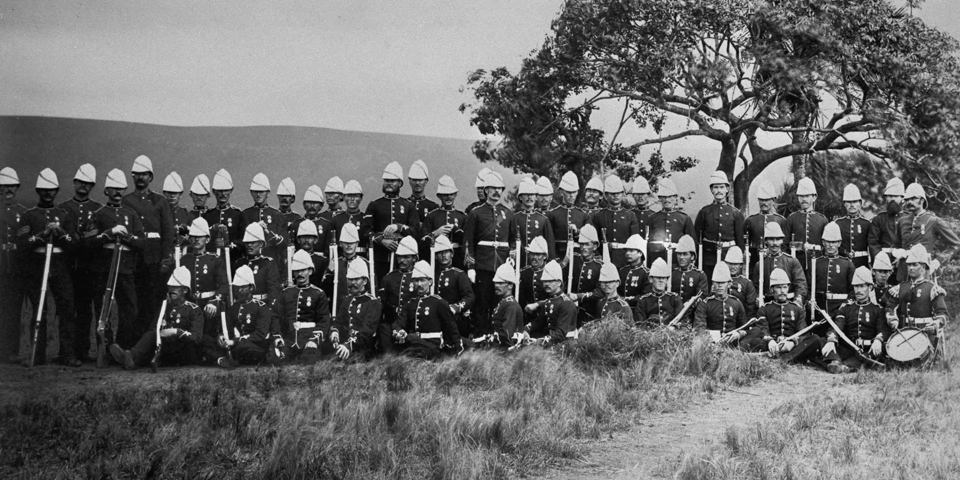
15 years of colonial service
William sailed for India onboard the Serapis on 3 March 1883 to join the 1st Battalion, where he served for four years. During this time, he entered the defaulters’ book for the only time in his career, being severely reprimanded for neglect of duty. He returned home to re-join the 2nd Battalion in 1887, now based in England, being promoted to Colour Sergeant the next year. His term of service was due to expire in 1889, but William chose to remain in the army, at which point he was given service number 3463.
William left England in July 1889 to begin a decade of service away from home, which would see him first serve in Malta. It was here during 1890 that he joined the freemasons. In 1892 the 2nd Battalion deployed to Cyprus and then to Egypt in 1895, with William having been promoted to Quartermaster Sergeant the year before.
In 1896 they deployed to the Sudan as part of the Dongola Expeditionary Force under the command of Major General Sir Herbert Kitchener, part of the broader effort to secure control over Sudan, which had been suffering a Mahdist uprising for the past eight years. The primary objective was to recapture the town of Dongola, which was strategically located along the Nile River. Armed with the most modern military equipment, they made slow and methodical progress, building fortified camps along the way, to be supplied by a new railway. They decisively defeated the Mahdist forces at Firket on 7 June, securing control over the area and enabling the further advance to successfully capture Dongola in the Battle of Omdurman on 2 September. Although the Mahdi attacked with fanatical bravery, they were no match for Kitchener’s army. By the end of the day, they had suffered approximately 27,000 casualties. The Anglo-Egyptians lost only 43 dead.
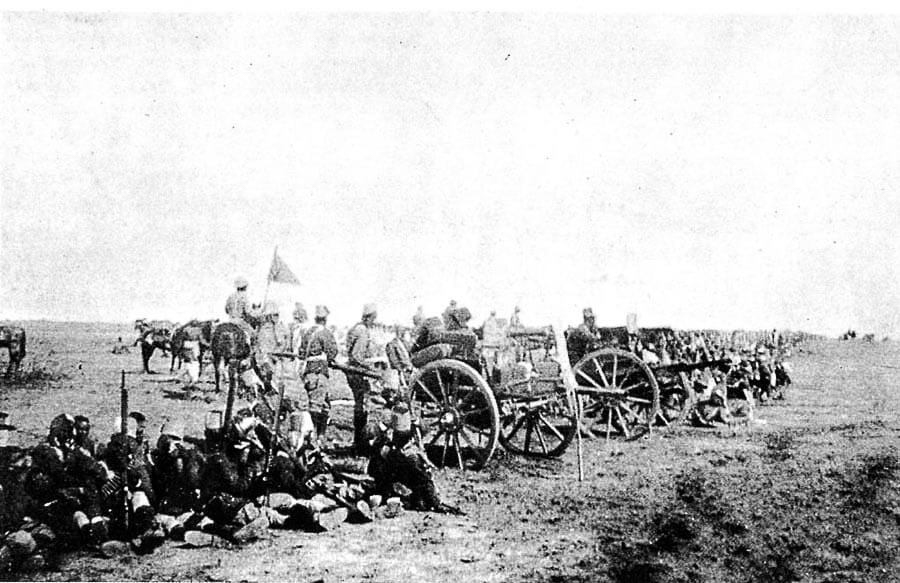
Service at Woolwich
The Battalion sailed for India in 1897, but William headed in the opposite direction and returned home as his second period of service came to an end. He once again chose to remain in the army and two years later was rewarded with a promotion to Staff Quartermaster Sergeant and a transfer to the Staff of the Army based at Woolwich Barracks, thus avoiding heading to South Africa with his old unit as the Boer War intensified.
William continued in his position as Staff Quartermaster Sergeant at Woolwich throughout the First World War, thus avoiding the carnage of the Western Front. He retired in September 1920 after 43 years of exemplary service, being awarded medals for long service and good conduct.
Units
- 94th Regiment of Foot (1877-1881)
- 2nd Battalion, The Connaught Rangers (1881-1883)
- 1st Battalion, The Connaught Rangers (1883-1887)
- 2nd Battalion, The Connaught Rangers (1887-1897)
- Staff of the Army (1897-1920)
Medals



